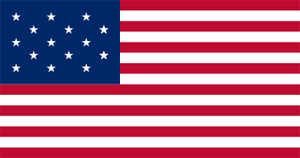War of 1812 Battles |
Colonial Wars |
American Wars |
Occupation of Sandwich
July 12, 1812 in Sandwich, Upper Canada
Books on Occupation of Sandwich are available from Amazon.com
 |
|||||||||||||||||||||
|
Brig. Gen. William Hull was ordered to go to Detroit. He did not know that the war had officially started yet, although the British forces did know. He would liked to have paused to reduce Fort Malden, Upper Canada, close by to Amherstburg, which otherwise would always be a threat to his communications line.
Hull had opened a bombardment across the river on the British workmen, who were preparing gun emplacements on their side of the Detroit River. He reached Detroit on July 5 and halted his bombardment.
His orders from Washington, D.C. were to secure the surrounding countryside and await further instructions, but they were quickly modified. One of the modifications Secratary of War ?? Eustis told him to take Fort Malden as soon as his force was up to it. Hull had all along been led to expect a diversion in his favor to the north and east, but this now seemed to be withdrawn. By July 9, he had become convinced that he lacked the strength to take Fort Malden.
The Canadian forces across from Detroit decided that the American forces to be too strong for them to defend against. With this, they decided to abandon the town of Sandwich and concentrated upon Amherstburg. Aware of this movement, Hull made a bold move to cross the river into Canada on July 12. Here, he took peaceful possession of the town without a fight.
At once, Hull issued a flambouyant proclamation to the townspeople which described his arrival as that of a liberator ready and able to give the benefits of independence to those who welcomed them, or the perils of war to those people who opposed them. Hull had reason to believe that many of the settlers would, as American-born recent arrivals to the Western District of Upper Canada, not oppose but rather welcome his advance.
Part of the proclamation read:
"...Everybody else will be emancipated from Tyranny and oppression and restored to the dignified station of freemen..." Afterwards, Canadian militiamen deserted to Hull in such droves that Lt. Col. Thomas B. St. George, commander of Canadian forces at nearby Fort Malden, had only 470 men left with him. Hull had reported to Washington, D.C. that "The Canadian militia are deserting in large parties, about sixty came in yesterday. I send them to their homes and give them protection."
Hull's move into Canada had raised for the first time the problem of the use of militia outside of the United States. About 188 men of the Ohio militia asserted that they could not be required to cross into Canada. Their captain was at once court-martialed and dismissed from service. Immediately after this incident, he was reelected to the command
of the Ohio militia. neither he nor his men made the crossing with Hull and the remainder of the American forces.
